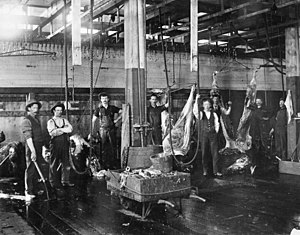As many of you know, I'm fascinated by the possibilities of the age in which we live. I'm a historian and so I'm a bit jaded when it comes to "this is the most important moment in human history" kind of stuff --- but I'm intensely and keenly aware that, yeah, we are living in an epic era of an epoch. (I think that makes sense . . . )
Anyway, to that end, I'm experimenting with how to use the tools at hand: Twitter, Facebook, this website, sites like Medium, etc.
At the moment, my experiments are focused on this site and on Facebook. Heretofore (how's that for a ten buck word?), I've thought of Facebook as, ya know, that site we all love to hate but mostly love (yes, I love Facebook) because we can hang with our friends even though they live 2,000 miles away.
But: a few days ago, I created (at the prodding of my of my publicity team) a "Maureen Ogle Author" "page" at Facebook. I didn't want to do this. I truly needed prodding.
And . . . about an hour after I created the page, I thought "Hmmm. Hey. You know, there might be something to this. Perhaps Facebook can be used to promote the book in ways I hadn't realized."
Including figuring out how to attach this site to that Facebook page. Obviously, all I have to do is post a link to, say, this blog entry at the FB page and voila!, they're linked. But I'm interested in digging deeper to see how I can make the two sites function as a more powerful tandem promotional tool. (*1)
I also plan to tinker with this site a bit. I'd like to add a bit more functionality to it so it's easier for people to find what I want them to find, relative to the new book. So if the site undergoes a bit of wonkitude over the next week or so, that's why.
Anyway. I'm in full-bore promotional mode. Heh, so much so that I'm not even thinking about that new book I want to write. I'm talkin' laser focus here. (Cover your eyes.)
I hope you'll bear with me. And: if you've a mind to, I hope you'll read the content I'll be posting here, such as the Q&A Series, and that, hey, maybe you'll even pass along some of this good stuff to your friends.
Thanks!
_______________
*1: Because, yes, I MUST promote the book. The ONLY way to get people to read the book is if I keep shoving it in front of their faces.
Mercenary? Yes. But having spent seven years of my life on the damn thing, I'll be equally damned if I'm going to let it sink into the history dustbin.
And for those who think "Oh, come one! Isn't writing a book about "art"? -- I say: How is writing the book any different than, say, launching a business making pizza or selling web designs or cleaning houses? Answer: it's now. I labored to write the book. Now I'd like to earn some money from that labor.

